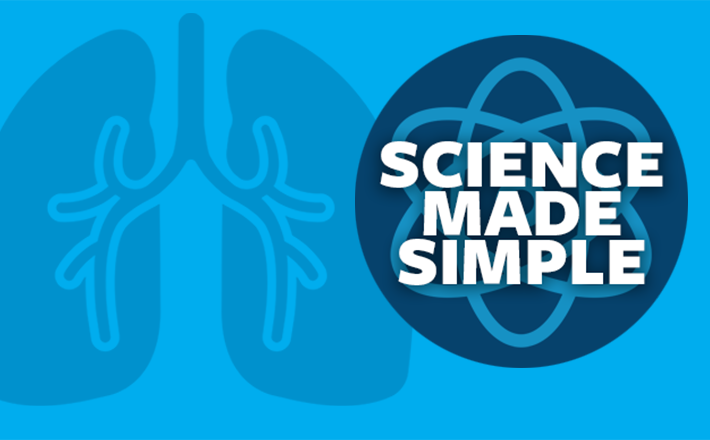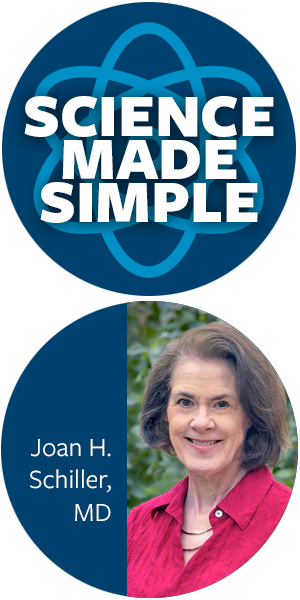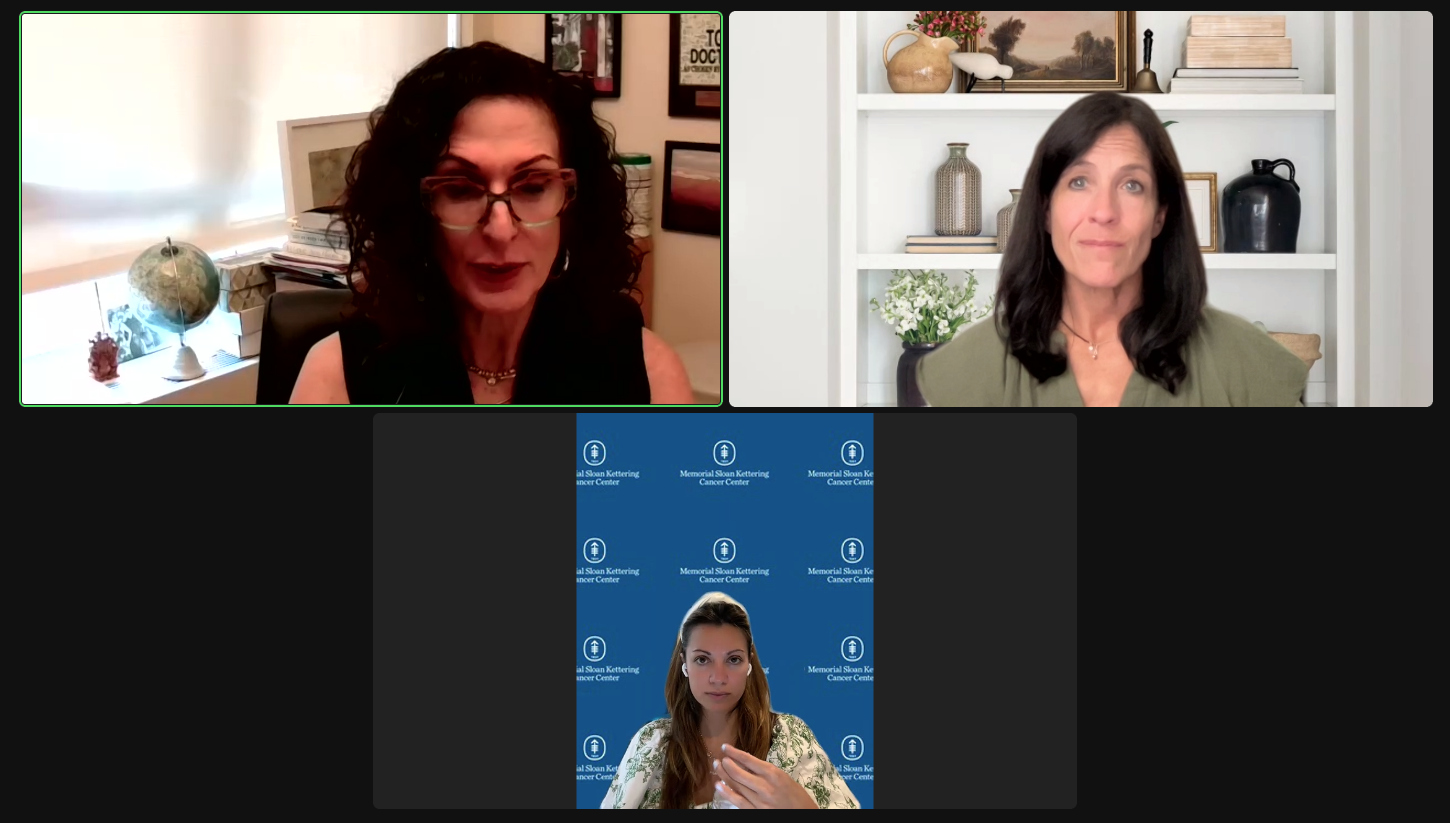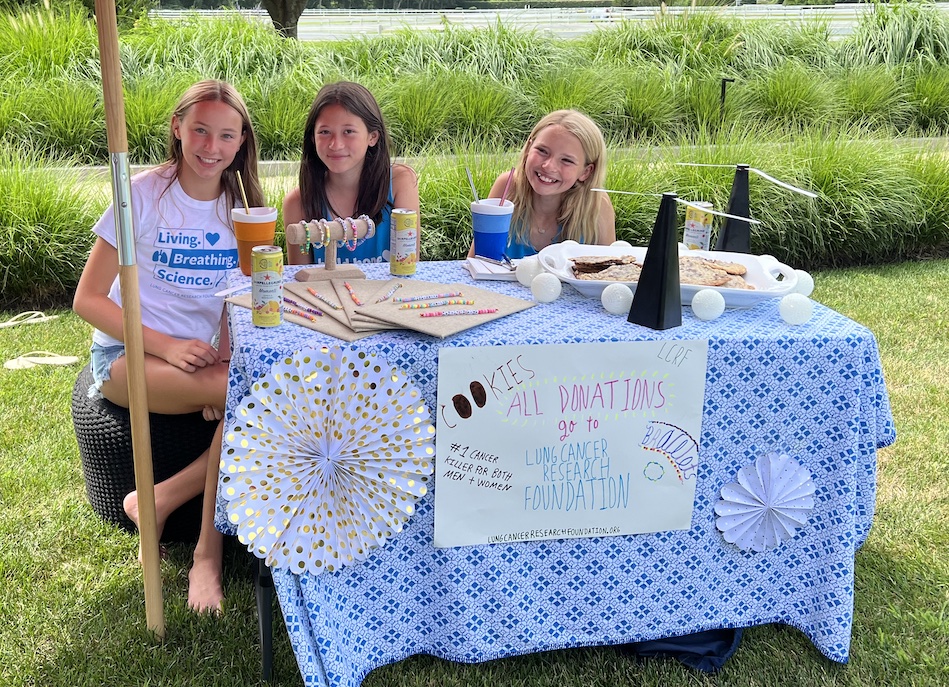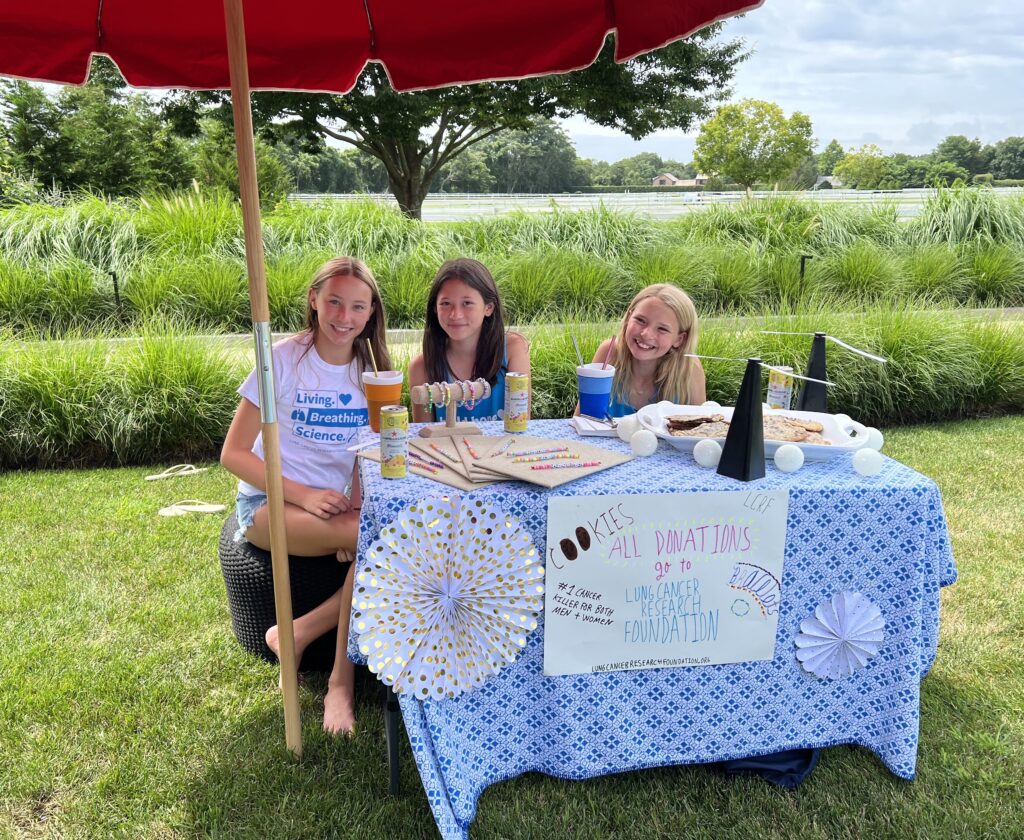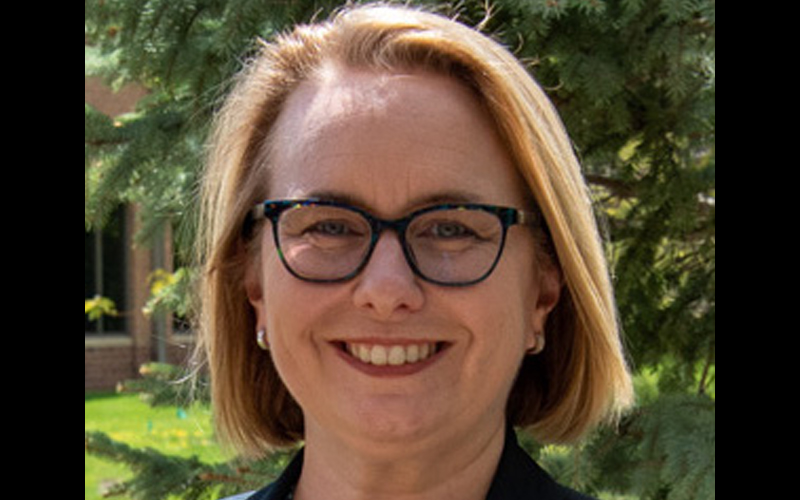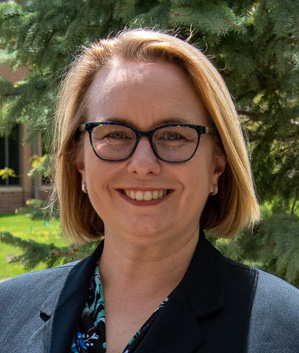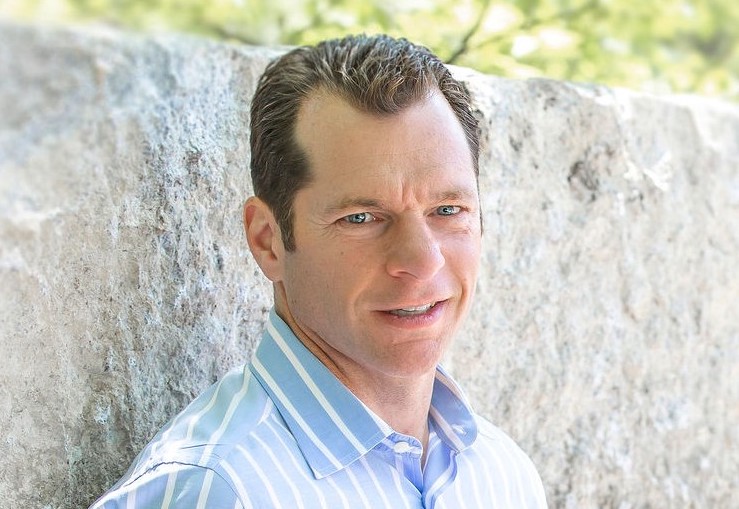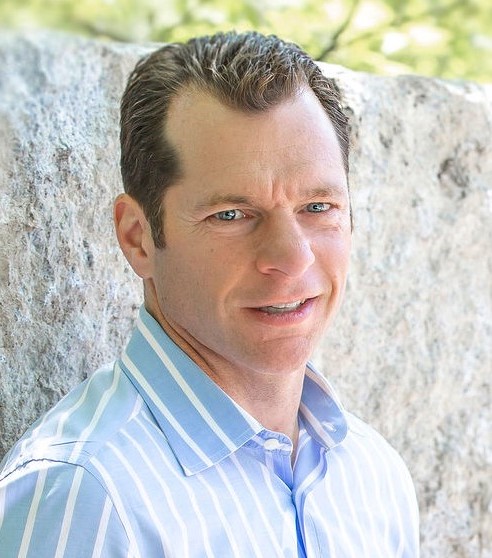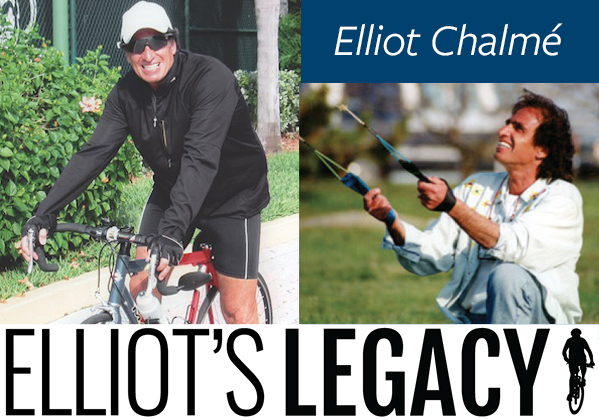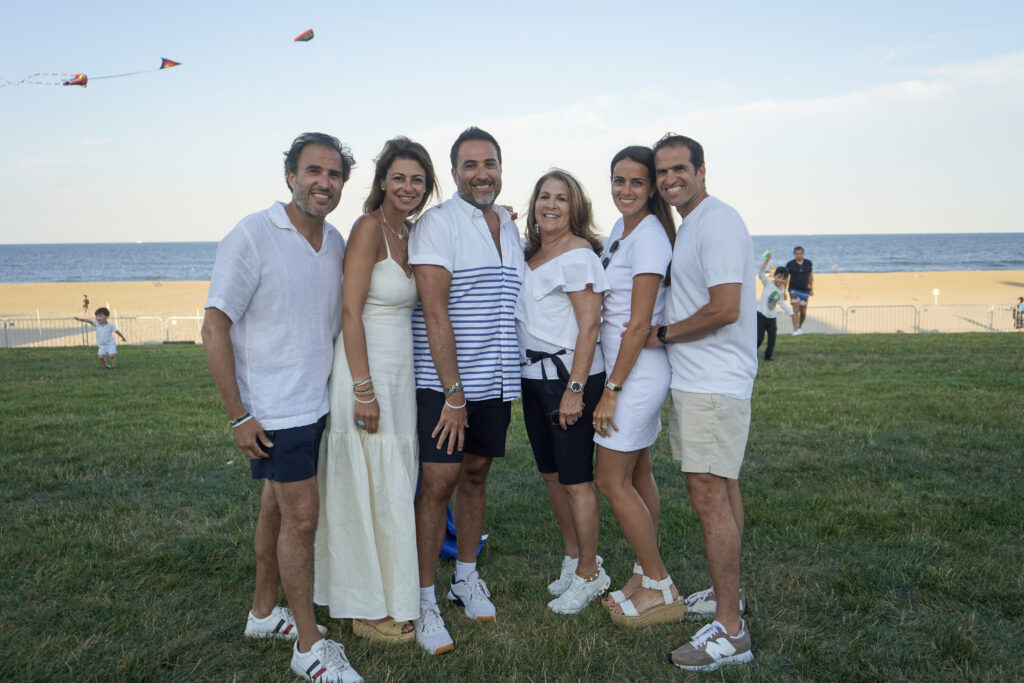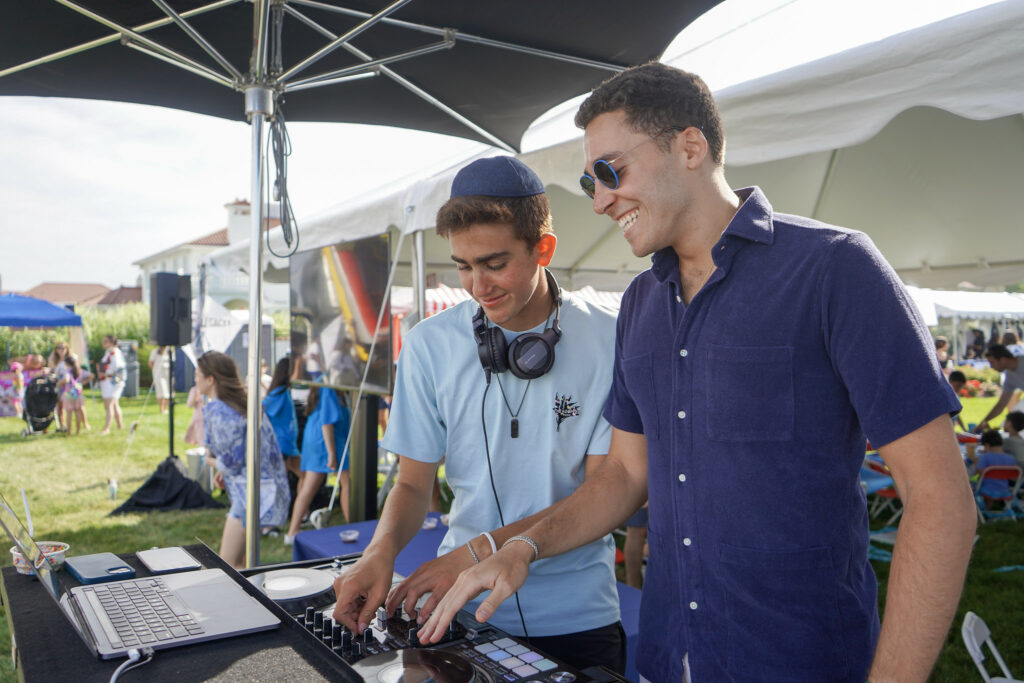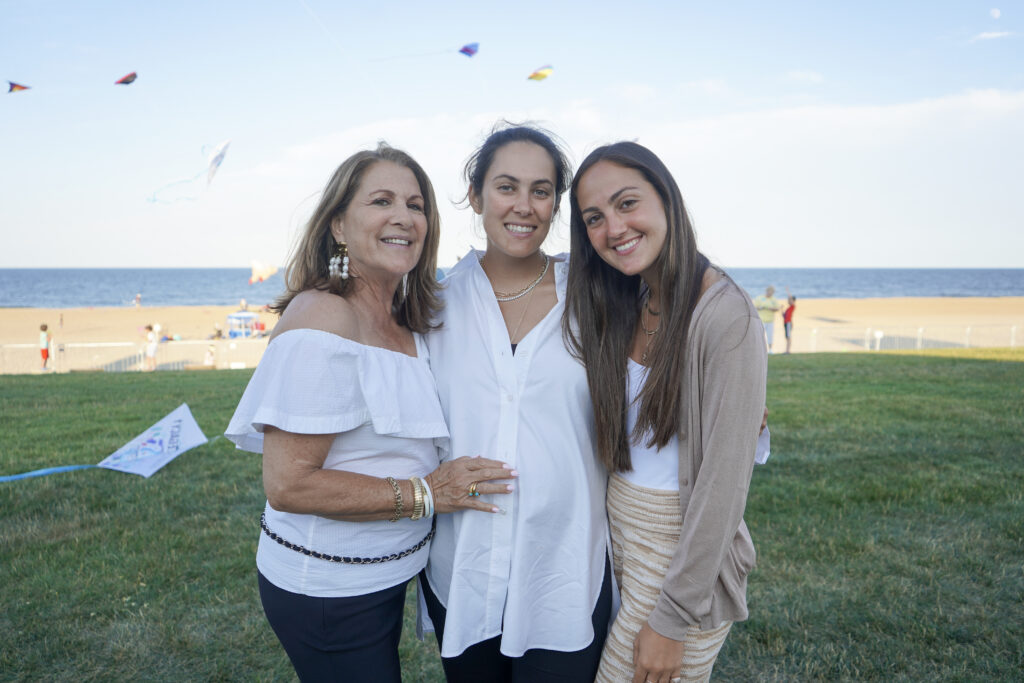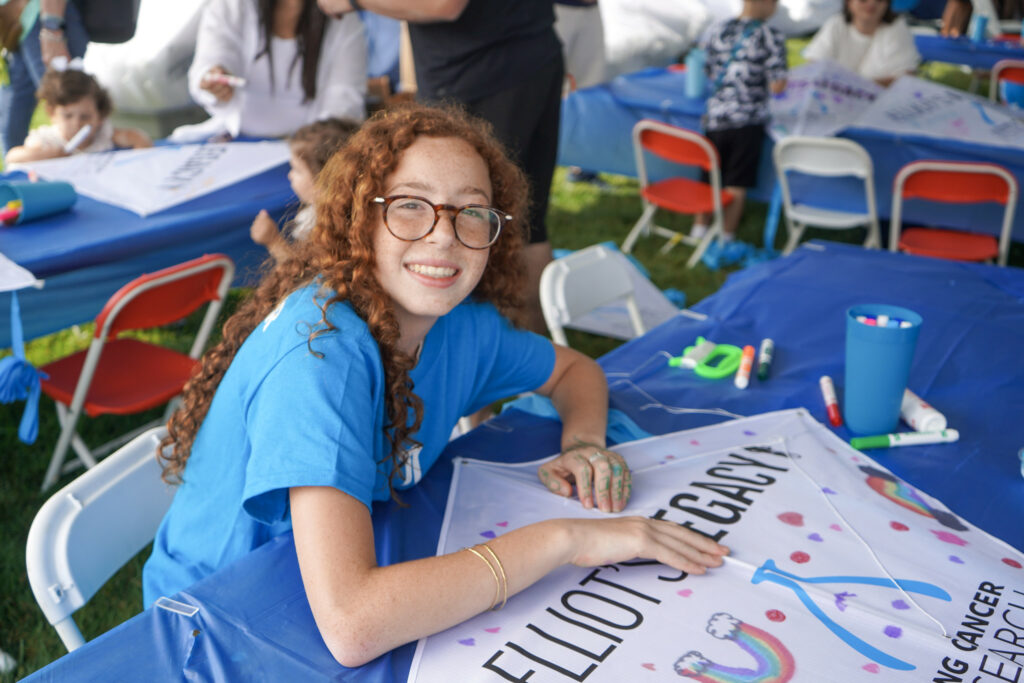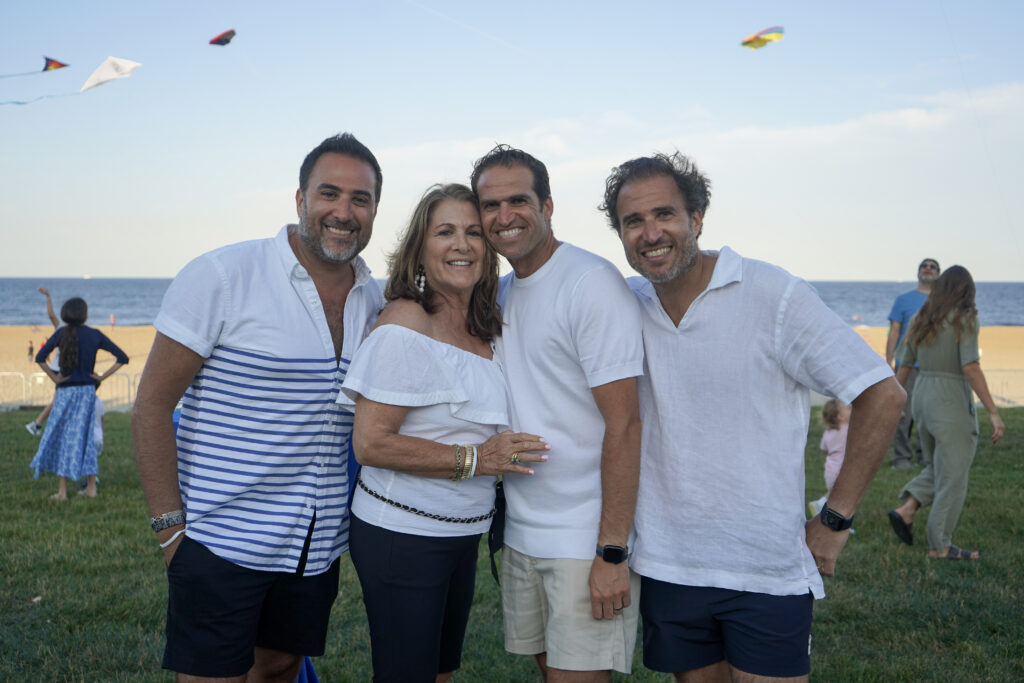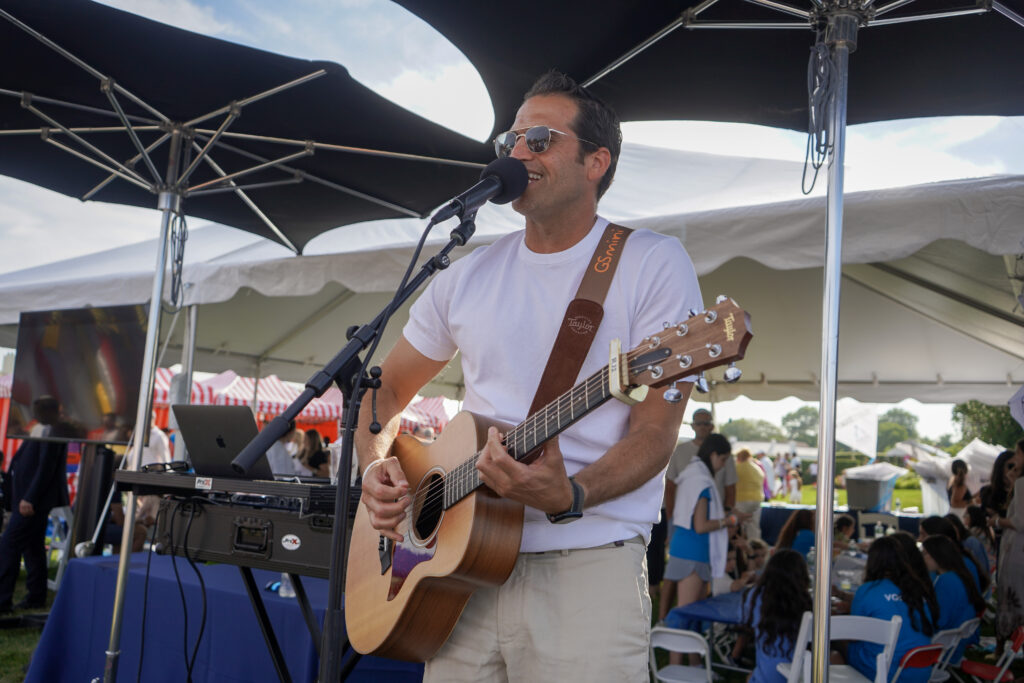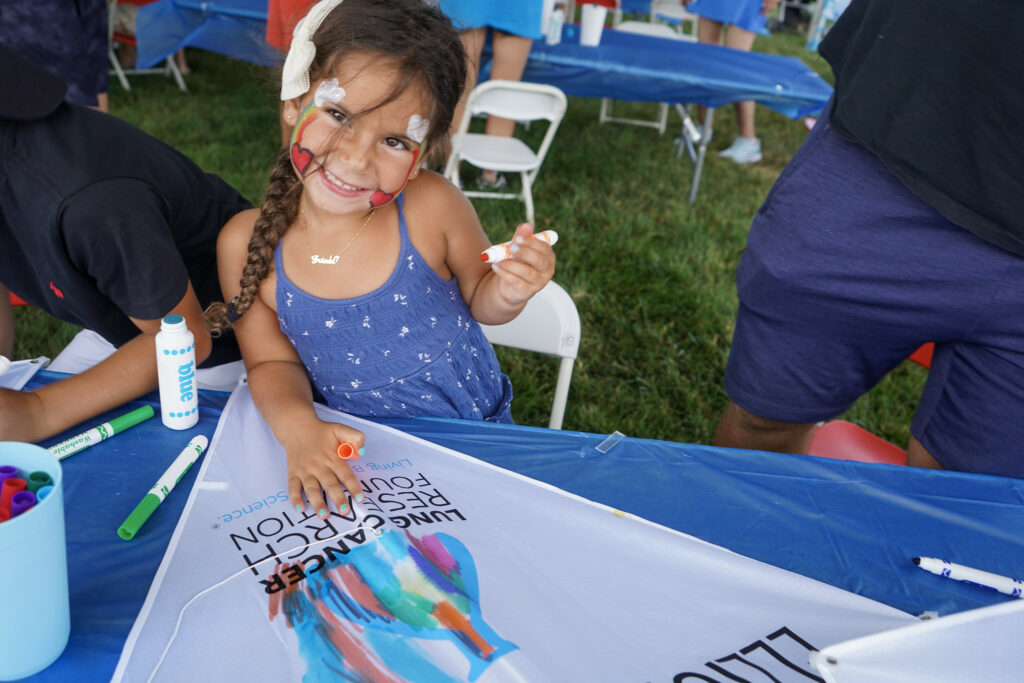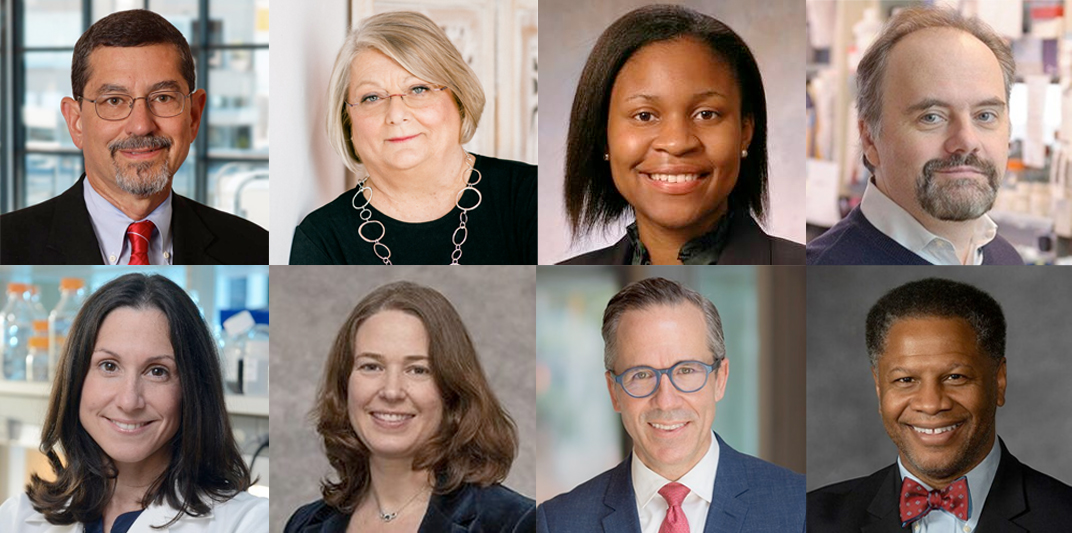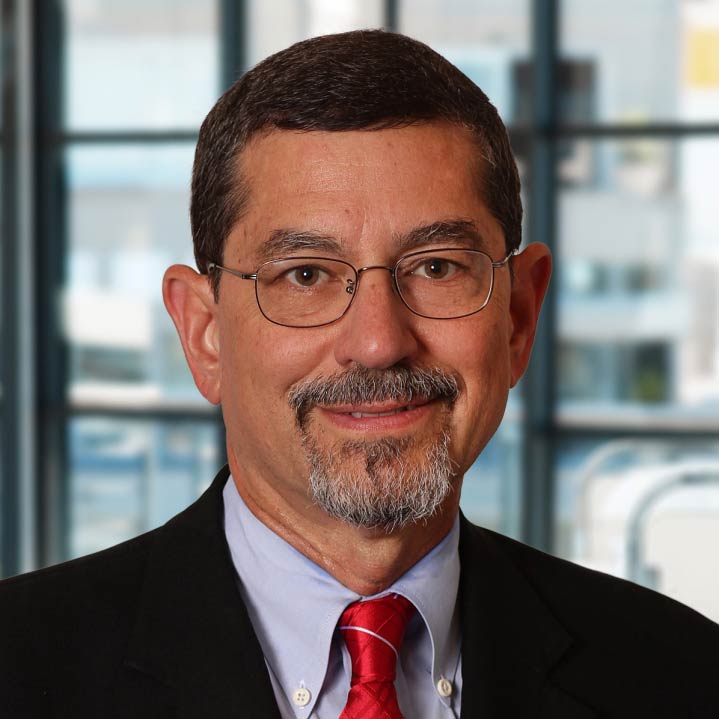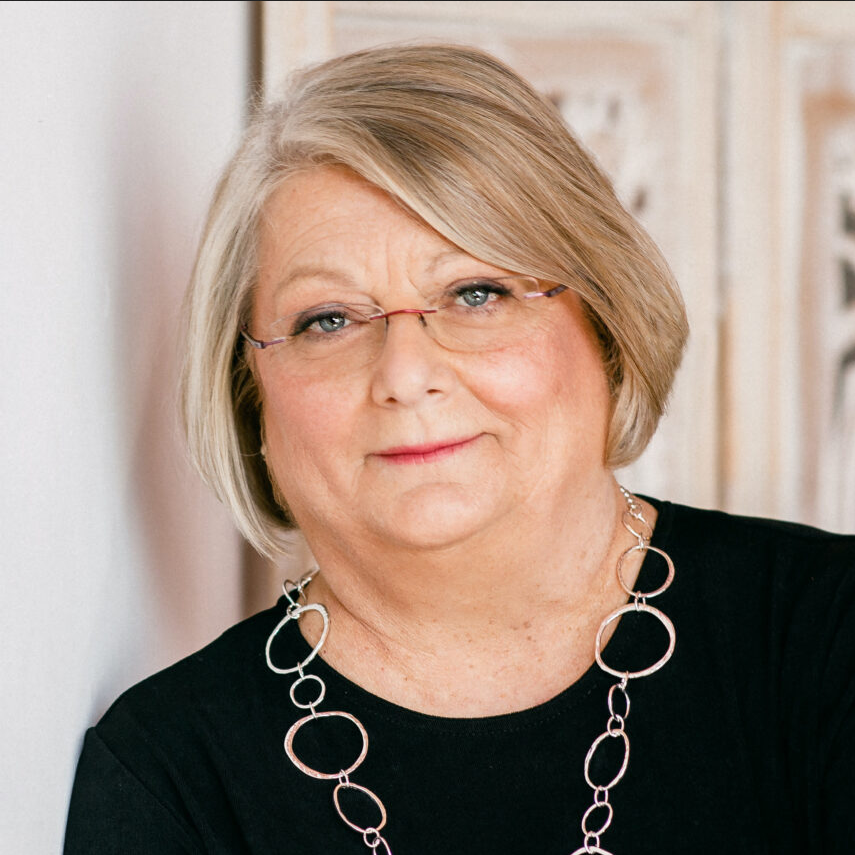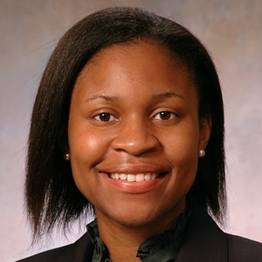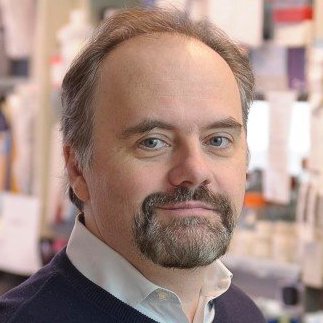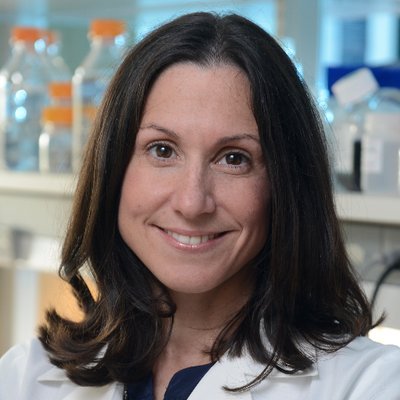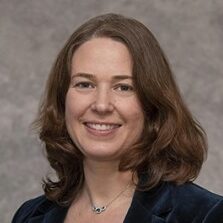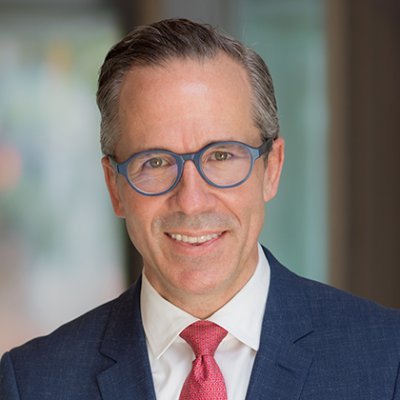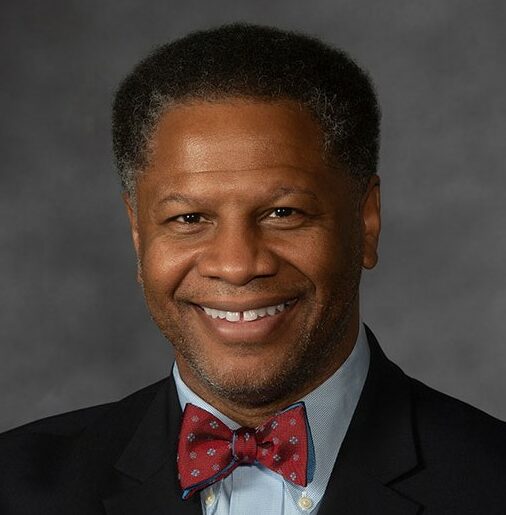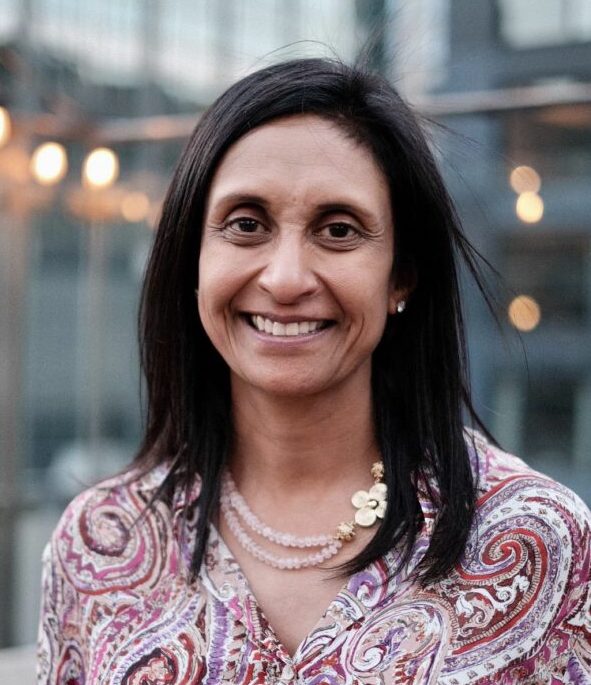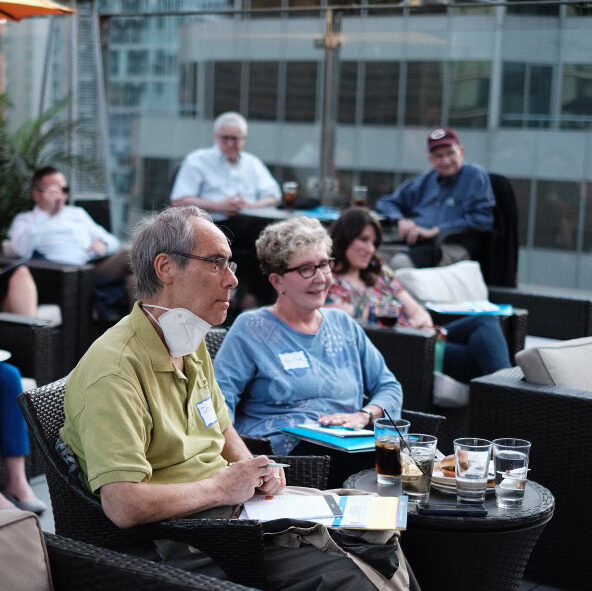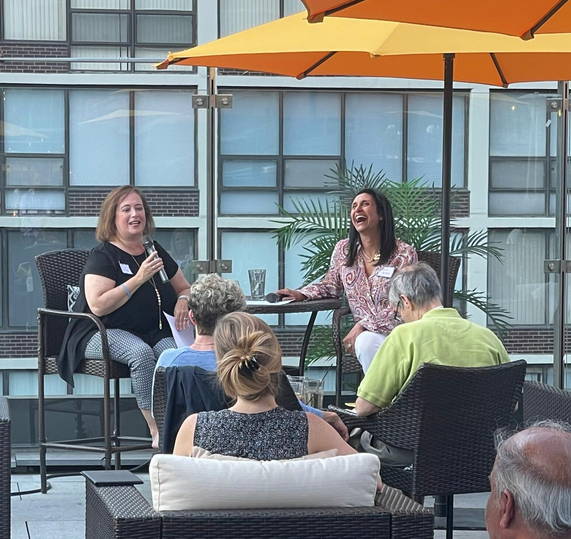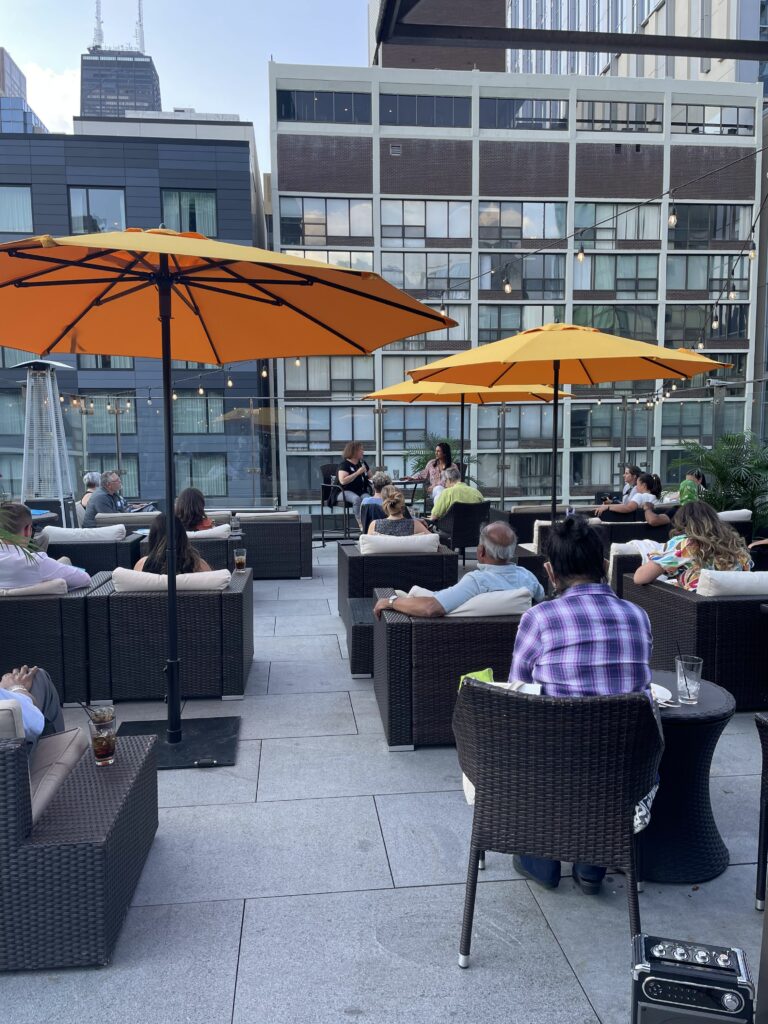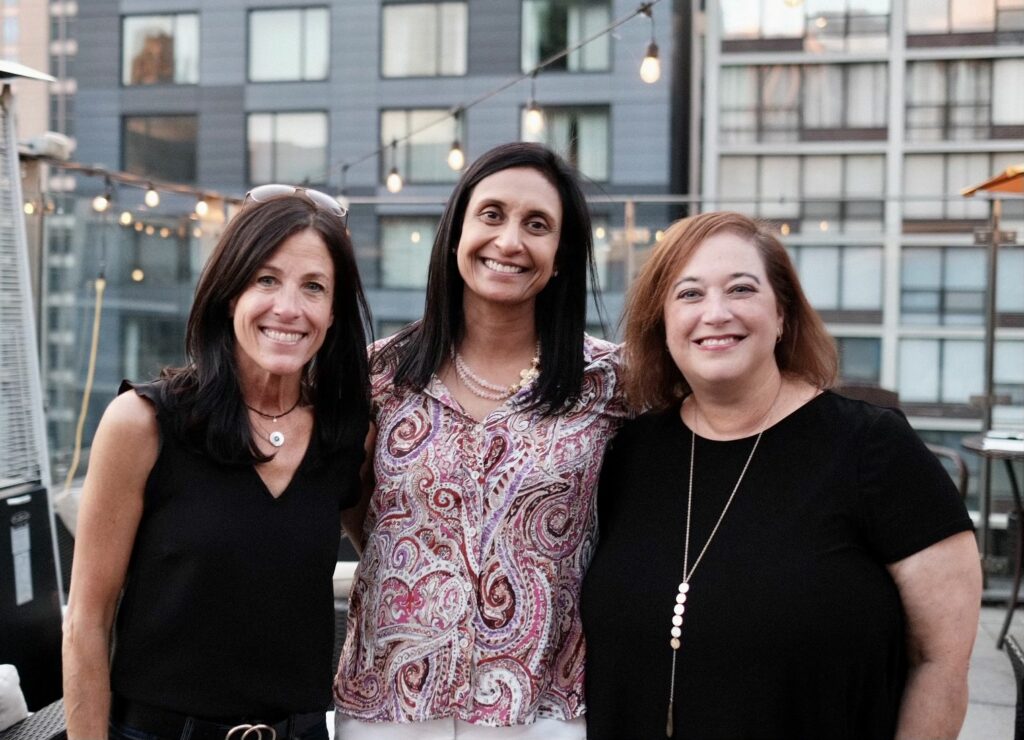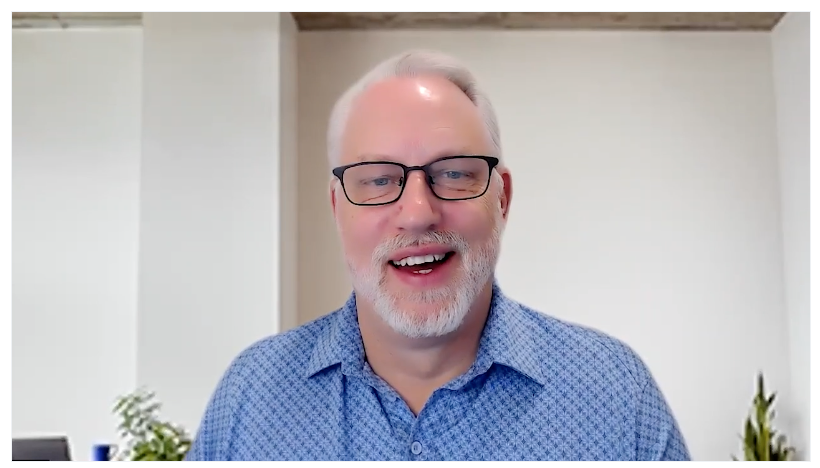Committee to steward foundation’s educational resources and outreach programs
NEW YORK, NY (September 6, 2022) – The Lung Cancer Research Foundation (LCRF) is pleased to announce the appointment of a select group of volunteers to its newly formed Education & Engagement Committee. Comprised of clinicians, researchers, patients, caregivers and advocates, this committee is tasked with ensuring that LCRF is providing educational content that is relevant, helpful, and meets the needs of the lung cancer community. In addition, it will ensure these resources are readily available to inform and empower individuals on their lung cancer journey.
The new committee grew out of LCRF’s Patient Education Review Committee, led by Dr. Narjust Florez and Dr. Joan Schiller. Dr. Isabel Preeshagul is chair of the new Education & Engagement Committee, and Drs. Florez and Schiller remain critical advisors.
“I am so pleased to see the evolution of this advisory committee,” says Dr. Schiller. “Working with Dr. Preeshagul and the LCRF staff to deliver programs and resources that meet the needs of lung cancer patients, their caregivers, and their healthcare teams is an important part of ensuring that LCRF is able to deliver on its research commitments.”
“I’m delighted to be chairing this incredible committee,” commented Dr. Preeshagul. “With Dr. Schiller’s invaluable experience and guidance, this dedicated group of volunteers will make certain that LCRF’s programs and resources are always timely, accurate, and accessible for all patients with lung cancer and those who care for them. This committee’s varied membership provides us with a diverse perspective, ensuring that we continue to deliver high quality comprehensive information. I’m excited about the positive difference we’re making in the lives of patients, caregivers, and their families through LCRF’s programs.”
“As a primary caregiver to someone with a lung cancer diagnosis, having access to resources, information, and experts in the field is important to me – and raising awareness of lung cancer without stigma even more so,” says Rhonda Meckstroth. “LCRF has been a resource for me, and I’m honored to be a part of such an important committee. I can lend my experience to help others in my shoes, and help people understand that anyone with lungs can get lung cancer.”
Members of the Education & Engagement Committee serve a two-year term and share a commitment to the mission of LCRF: to improve lung cancer outcomes by funding research for the prevention, diagnosis, treatment, and cure of lung cancer.
LCRF’s Education & Engagement Committee Members:
Isabel Preeshagul, DO, MBS
Committee Chair
Assistant Attending Physician, Thoracic Oncology
Memorial Sloan Kettering Cancer Center
Sydney Barned, MD
Survivor and Advocate
Internal Medicine Hospitalist
Anne Arundel Medical Center
Dave Bjork
Survivor and Advocate
Vice President of Empowerment
GRYT Health
Phil Bonomi, MD, MS
Professor Emeritus
Rush University Medical Center
Meghan Cox
Advocate
Denise D. Cutlip
Survivor and Advocate
Devika Das, MD, MSHQS
Clinical Associate Professor of Medicine, Division of Hematology and Oncology
Department of Medicine, University of Alabama at Birmingham
Section Chief of Oncology, Birmingham VA Medical Center
Narjust Florez (Duma), MD
Associate Director, Cancer Care Equity Program
Thoracic Medical Oncologist
Dana-Farber Cancer Institute, Harvard Cancer Center
Member of the Faculty, Harvard Medical School
Kathryn A. Gold, MD
Clinical Professor of Medicine
University of California San Diego, Moores Cancer Center
Benjamin Philip Levy, MD
Clinical Director of Medical Oncology
Johns Hopkins Sidney Kimmel Cancer Center
Associate Professor of Oncology
Johns Hopkins University School of Medicine
Stephen V. Liu, MD
Thoracic Medical Oncologist and Associate Professor of Medicine
Georgetown University
Director of Thoracic Oncology and the Head of Developmental Therapeutics
Georgetown University Lombardi Comprehensive Cancer Center
Rhonda Meckstroth
Caregiver and Advocate
Catherine Paykin, MSSW, LCSW
Social Worker
NYU Langone Health
Jyoti D. Patel, MD
Professor of Medicine and Medical Director of Thoracic Oncology
Robert H. Lurie Comprehensive Cancer Center
Northwestern University Feinberg School of Medicine
Rachel Sanborn, MD
Medical Director, Thoracic Oncology Program
Medical Director of Phase I Clinical Trials Program
Robert W. Franz Cancer Research Center, Earle A. Chiles Research Institute at Providence Cancer Institute
Joan H. Schiller, MD
Deputy Director, Inova Schar Cancer Center (Emeritus)
Adjunct Professor, Department of Medicine
University of Virginia
Nagashree Seetharamu, MD, MBBS
Medical Oncologist, Thoracic and Head and Neck Oncology
Monter Cancer Center, Northwell Health Center for Advanced Medicine
Professor, Donald and Barbara Zucker School of Medicine at Hofstra/Northwell
Christos Stavropoulos, MD, FACS
Director of Thoracic Oncology
The Lefcourt Family Cancer Treatment and Wellness Center (Englewood Health)
Ishwaria M. Subbiah, MD, MS
Medical Oncologist
Palliative Care and Integrative Medicine Physician
University of Texas MD Anderson Cancer Center
###
About the Lung Cancer Research Foundation (LCRF)
The Lung Cancer Research Foundation® (LCRF) is the leading nonprofit organization focused on funding innovative, high-reward research with the potential to extend survival and improve quality of life for people with lung cancer. LCRF’s mission is to improve lung cancer outcomes by funding research for the prevention, diagnosis, treatment, and cure of lung cancer. To date, LCRF has funded 394 research grants, totaling nearly $39 million, the highest amount provided by a nonprofit organization dedicated to funding lung cancer research. For more information, visit LCRF.org.

